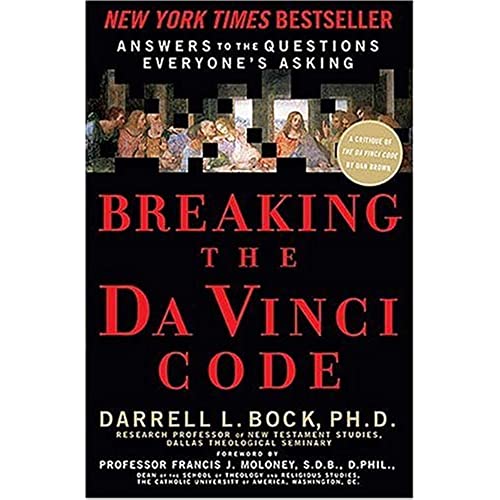

Breaking the Da Vinci Code: Answers to the Questions Everyones Asking
-

Kenneth W. Bowles
> 3 dayBock, a past president of the Evangelical Theological Society and a faculty member at Dallas Theological Seminary, can always be depended on as a world class theologian. In this book he does an accurate job of conveying what Scripture and non-canonical writings say about Jesus. He is also aware of modern anti-Christian movements and how the publishing of TheDaVinci Code fits into their schemes to put down Christianity. I cannot recommend The DaVinci Code, but for those who have read it, this book is an excellent source to help them separate fact from fiction.
